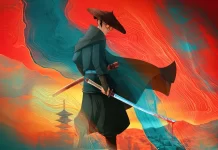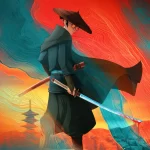[Plan ahead for the season to come with our culture calendar.]
But as the Walkers lay dormant for centuries, people in Westeros started to forget. This nightmare enemy of all mankind, they decided, was a fairy tale. Instead, they came to believe, the wall was there to protect the Seven Kingdoms of Westeros from the “wildlings” — their term for the poor suckers who happened to live on the desolate northern side of the wall when it went up.
Over generations, the Night’s Watch — the force created to patrol the Wall — changed its self-image too, thinking of itself as a kind of border patrol, an icebound I.C.E., there to defend Westeros from what it saw as savages who wanted to pour over the border and steal the riches of honest, hardworking Westerosi.
If you’ve watched “Game of Thrones,” you know where it goes from there. The Walkers rise again, and the Night’s Watch leader Jon Snow (Kit Harington) wants to make common cause with the wildlings. “They were born on the wrong side of the wall,” he says. “That doesn’t make them monsters.”
His comrades, declaring this fake news, stab him to death. (Only temporarily!) But by the most recent season, with the zombie army encroaching, a resurrected Jon has convinced the squabbling armies of Westeros to pause their war for the Iron Throne — sort of — to fight the undead.
In “Game of Thrones,” in other words, nationalism and tribalism are not essential forces for preserving society but an existential threat to survival. The Wall is a mighty symbol of protection but ultimately an ineffective one; the only salvation, if there is one, is people deciding they have more to gain by working together. And the worst leaders (if sometimes the most successful) are those like Cersei Lannister (Lena Headey), who see disaster as an opportunity to decimate and divide rivals.
The president is a creation of TV and a voracious consumer of it, but his tastes are limited and specific. He likes cable news in general, and news about himself best of all. He became a star in reality TV, which relies on condensing human experience into catchphrases and simple, broad symbols, and he applied its lessons on the campaign trail by rendering the idea of security as a great big wall.



















![[Book Review] The Blade Itself (The First Law Trilogy) by Joe Abercrombie](https://bendthekneegot.com/wp-content/uploads/2018/01/1516047103_maxresdefault-218x150.jpg)
















